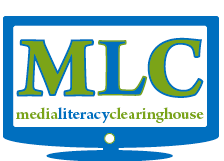Recommended Resources
Debates and elections
The split-screen told the story (NYT, Sept 27)
Lights, Camera, Politics: A Look Into Presidential Debates (Sept. 21)
Topics for first presidential debate announced (Sept. 19)
Teaching About Presidential Debates (Webinar)
Third party candidates miss cut for first presidential debate
When Donald Meets Hillary (The Atlantic, October 2016)
CSPAN Rebroadcasts Previous Debates
The State of The Presidential Debate (New Yorker Magazine)
Is The Current Presidential Debate Process/System Broken?
Debunking Myths About Presidential Debates
How Social Media Revolutionized Debates describes four major ways the Internet and social media have changed how debates are conducted, prepared for, judged and spun.
Education World offers a wealth of resources and ideas for classroom debates.
National Speech & Debate Association offers two debate resources for teachers:
1) Misconceptions About Listening
This handout can help students differentiate between critical listening and passive listening.
2) Lesson Plan: Candidate Evaluation
Evaluate a speaker’s point of view, reasoning, use of evidence and rhetoric, assessing the stance, premises, links among ideas, word choice, points of emphasis, and tone used.
WNET Education’s Election Central is a guide to the election process, including the debates, the issues, and an interactive map of the campaign trail.
Democratizing the Debates reports on ways to reform the debates to make them more open and accessible to the public. Good background for understanding the debate process.
“Do Debates Matter?” by Joseph P. Williams, U.S. News & World Report, Nov. 13, 2015 describes the role of the debates in today’s media landscape.
“Do Presidential Debates Really Matter?” by John Sides, Washington Monthly, September/October 2012 provides evidence from elections since 1960 to show why the debates have limited impact on how people vote.
CNN’s Race for the White House is a 6-episode series that looks at both modern and historical campaigns and presidencies. Race for the White House Teacher’s Guide is a companion to the television series, containing lesson plans and student activities for grades 9-12.
The Great Debate is a multimedia resource from the Museum of Broadcasting, focusing on the 1960 Kennedy-Nixon debate, with additional commentary, and teaching resources in government, history, debate and communication.
Teach Politics in Class and Live to Tell About It offers suggestions for using the positive and negative elements of the 2016 campaign to develop lessons and activities that are interesting and effective.
Hillary Clinton Piles Up Research in Bid to Needle Donald Trump at First Debate
contrasts the preparation style of the two candidates. Mrs. Clinton¹s team is gathering insights into Mr. Trump’s personality to pinpoint weaknesses, but he prefers a freewheeling approach to avoid sounding scripted or phony.
Body language / Candidates’ words
Trump’s 2nd debate body language has social media buzzing
An analysis of Clinton/Trump facial expressions
In televised presidential debates, a candidate’s demeanor and facial expressions can say as much as the words that can
Body language expert weighs in on first Clinton/Trump debate “Body language/facial expressions catch the notice of debate viewers more than candidates’ actual arguments”
“Your Body Language Shapes Who You Are”, TED talk by Amy Cuddy, social psychologist at Harvard Business School, June 2012 (21 min.) describes the ways body language affects others’ perceptions of us and how it can change the way we see ourselves.
“The Body Language Behind the Presidential Debates” by Jared Keller, reprinted in the Bowdoin Daily Sun, Oct. 15, 2015 discusses the differences between Hillary Clinton’s and Bernie Sanders’s body language.
Secrets of Body Language, 30-minute History Channel documentary dissects bodily, facial and vocal expressions to reveal their meanings.
“Study Shows Expression Just as Important as Words in Presidential Debates” by George Watson, Texas Tech University describes the findings of studies done by Professor Erik Bucy—that a candidate’s nonverbal expression has as much influence on voters’ reactions as do his or her words.
“Trump’s Most-used Words on the Debate Stage? They’re Not All Beautiful” by Nick Gass, 2/25/16 provides a brief summary of some of the words most commonly used by several presidential candidates.
Google Answers briefly summarizes studies showing the effectiveness of learning through seeing vs. hearing or reading.
Share This Page:



